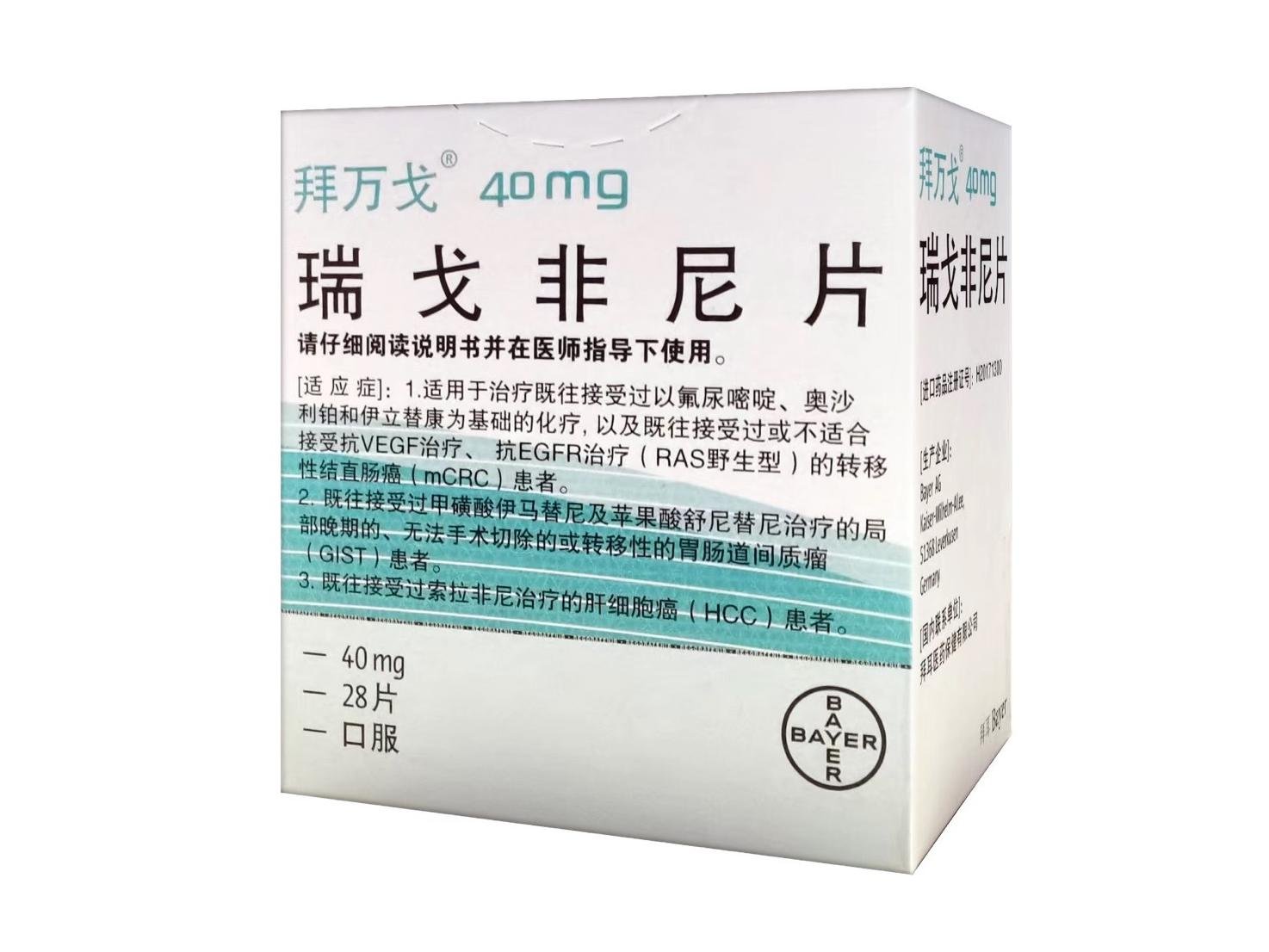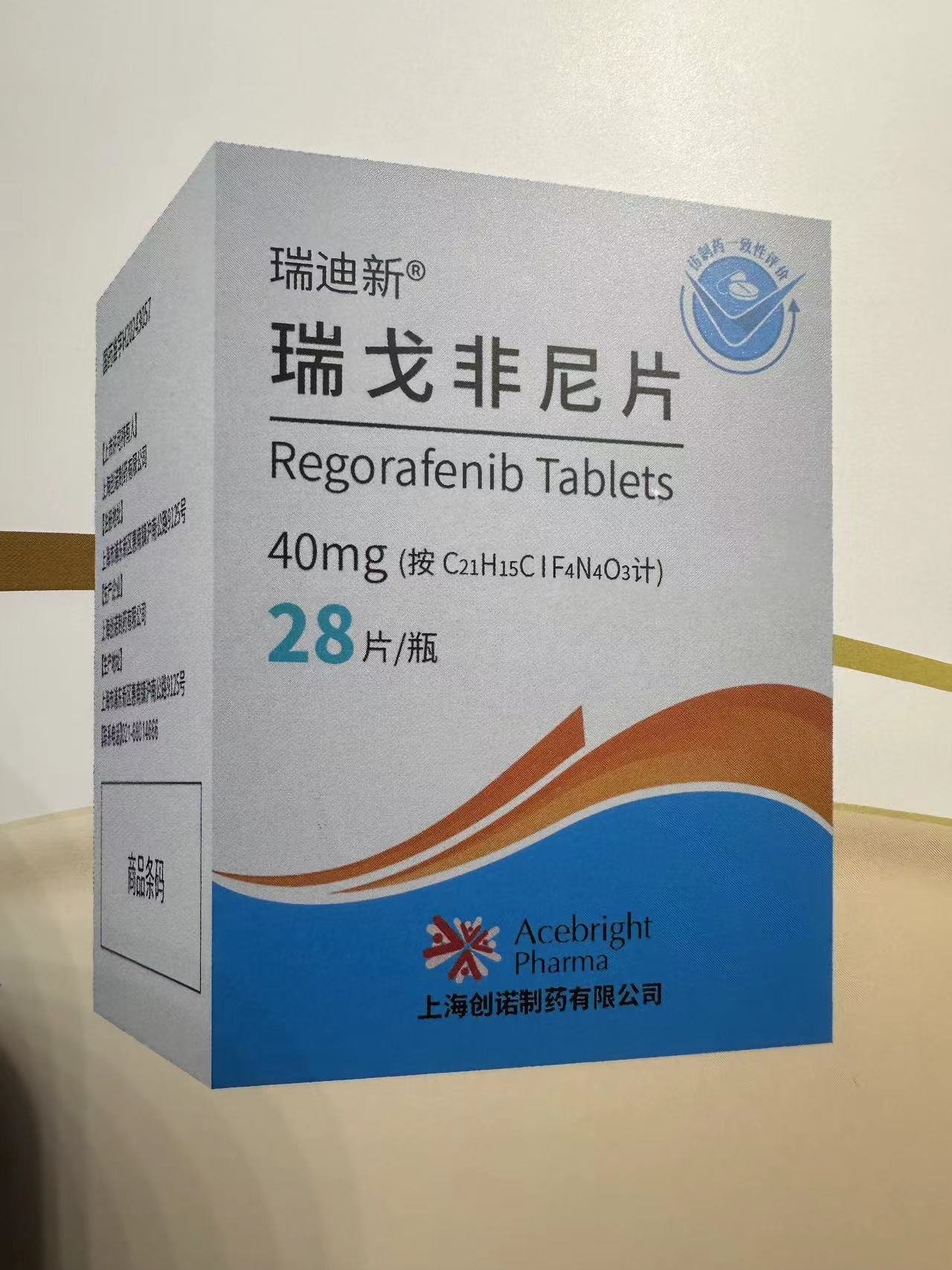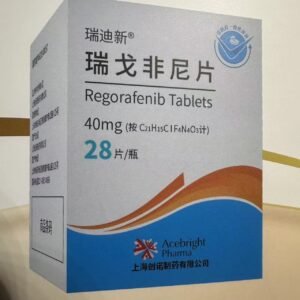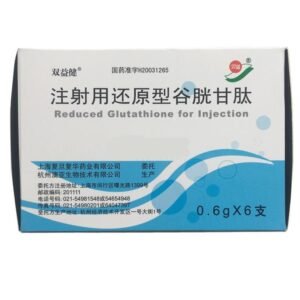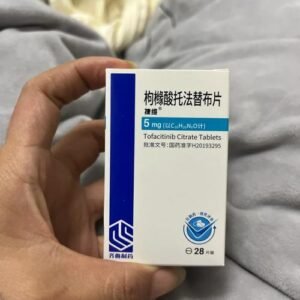Regorafenib Tablets
Function and indication
Regorafenib is a new type of oral multi-target kinase inhibitor that can comprehensively and continuously inhibit angiogenesis, inhibit tumor cell proliferation and tumor metastasis, and can also regulate the tumor immune microenvironment and play an effective anti-immunosuppressive effect. It is mainly clinically applicable to the treatment of the following diseases:
Metastatic colorectal cancer: patients who have previously received chemotherapy based on oxaliplatin, irinotecan and fluorouracil, and patients who have previously received or are not suitable for anti-epidermal growth factor receptor (EGFR) treatment (RAS wild type) and anti-vascular endothelial growth factor (VEGF) treatment.
Gastrointestinal stromal tumors (GIST): patients with metastatic GIST who have previously received sunitinib malate and imatinib mesylate treatment or locally advanced GIST that cannot be surgically removed.
Hepatocellular carcinoma (HCC): patients who have previously received sorafenib treatment.
Combined medication
Regorafenib combined with oxaliplatin, leucovorin, and fluorouracil in the treatment of elderly low rectal cancer can inhibit the formation of tumor angiogenesis, improve the patient’s immune function, and improve the level of inflammatory injury indicators.
Regorafenib combined with carrelizumab in the treatment of refractory recurrent liver cancer can cause all liver lesions to necrotize and most of them to shrink and disappear, and AFP quickly drops to normal and maintains for more than 1 year.
Fruquintinib and regorafenib combined with PD-1 inhibitors in the third line or above treatment of advanced colorectal cancer can reduce the incidence of drug resistance, prolong the drug treatment time and thus obtain better survival time.
Regorafenib combined with bevacizumab chemotherapy can greatly reduce the patient’s serum CEA, CA242, CA199 and CA125 indicators for metastatic colorectal tumors, and the clinical treatment efficiency is significantly increased, up to 90%.
Regorafenib combined with rapamycin in the treatment of diffuse bilateral lung metastasis after liver transplantation for giant liver cancer may not only improve the efficacy of molecular targeted drugs, but also reduce drug resistance.
Share:
Products
Our offers
Health Classification
Let us work together to protect precious health

